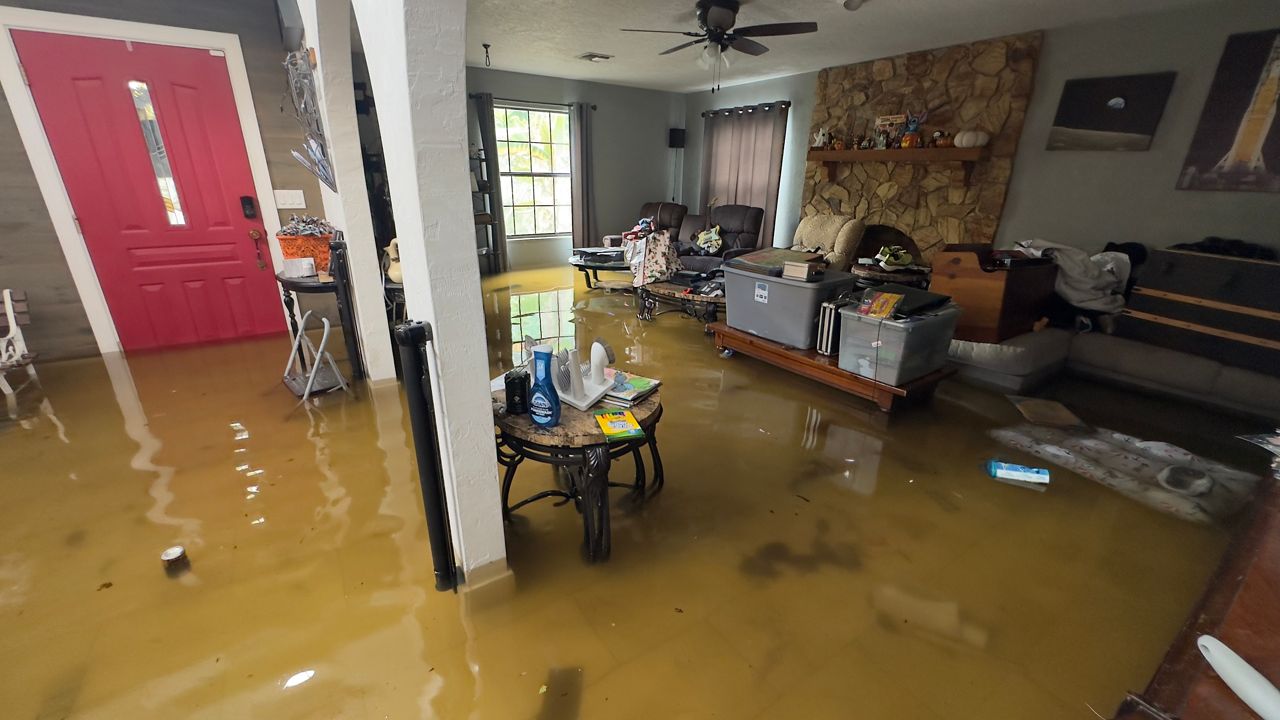TITUSVILLE, Fla. — The flash flooding that swept through parts of Central Florida Sunday night has left some families still inundated, and many of them do not have flood insurance. FEMA statistics show that only 20% of Florida’s houses are covered.
What You Need To Know
FEMA estimates only 20% of Florida homes are insured against floods
Insurance experts recommend homeowners consider private flood insurance during the government shutdown
Recent flash flooding caused significant damage to uninsured homes
Insurance experts like John Tankersley say homeowners need to know that even a day-to-day thunderstorm, like the one that dropped over 14 inches of rain on parts of Brevard County, can cause flash flooding almost anywhere in the state, so families should consider buying flood insurance.
Tankersley has been helping families buy property insurance in Florida for more than 25 years.
“Having flood insurance with homeowners’ insurance … it’s really the best thing you can do to protect yourself,” Tankersley said.
The recent downpour on Sunday evening caught families in Titusville off guard after yards and some homes got flooded. Chris Blinson and his wife Dawn were at dinner when their daughter called them on the phone.
“Next thing you know, my daughter was home. She’s like, ‘Dad, there’s water coming in,’” Chris Blinson said. “I’m like, ‘What do you mean, a little bit?’ She’s like, ‘I can’t stop it.’”
The Blinsons have flood insurance because their mortgage company requires it, but some of their neighbors who got flooded don’t have it.
“It’s just absolutely, utterly important,” Dawn Blinson said. “You have to have flood insurance.”
During the government shutdown, FEMA’s National Flood Insurance Program is not issuing new or renewal policies. Tankersley says there are several companies in Florida where you can buy a private flood insurance policy.
“If you’re an existing homeowner, and you’d like to purchase flood insurance, don’t wait for the government shutdown to be lifted. Start exploring private flood options,” he said.
Tankersley adds that homeowners can shop for a quote online or have an insurance agent help. He says the price will be based on whether a home is concrete block or wood frame, how close it is to a body of water and how old it is.
“You can purchase flood insurance anywhere between $500 to $1000 per year,” he said. “So if you think about that, that’s less than $100 per month, which is a night out.”
Families on a budget don’t have to cover the entire cost of their house, but they can put some protection in place.
“You can purchase flood insurance in bands of coverage that include contents as well,” Tankersley said. “So you can solve some of the problem instead of solving none of the problem.”
Homeowners can also choose a higher deductible to lower their monthly premiums.
Dawn Blinson recalls the flash flood happened so quickly, and there’s no way to predict where this might happen.
“Get what you can and cover your expenses,” she said.
Tankersley adds that most private flood insurance policies have a ten-day waiting period. Many policies issued by FEMA’s national program can have a thirty-day waiting period.
It’s also important to note that coverage must already be in place before a weather event. It cannot be purchased after the fact.

